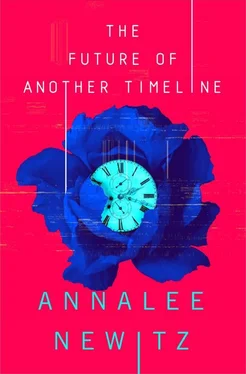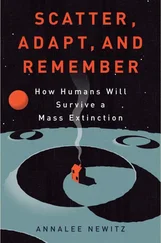As long as I kept busy with research at the AGU library, I could put aside my emotional vertigo from what had happened with Beth. The local pharmacist got used to my requests for willow bark extract, which made my stomach burn but took the edge off my near-constant headache. After a couple of weeks it got so bad that I bought some opium to relieve the pain.
I tried to keep it to myself, but it was hard to fool Anita for long. We were sharing a small room. One night she came home early from the university and caught me with a dab of opium, blowing smoke out the window.
“Tess.” She folded her arms. “You know that stuff is seriously addictive.”
“Sorry. I don’t do it very often. Sometimes it hurts too much to sleep.”
“You’re still getting those headaches? From the double memories?” Anita sat on the edge of our cubby while I stashed the remaining nugget of opium in a silver snuff box. I hadn’t smoked very much, but my agony had dulled to a twinge. I was probably too high to have this conversation, but I knew she wouldn’t let me off the hook.
“Correlation doesn’t equal causation, so we can’t be sure the pain is related to my memories.” I was mumbling. “Besides, the memories aren’t the difficult part. It’s more… the feelings.”
“What do you mean?”
“I used to feel certain about our mission. Like we are definitely making the timeline better. Now I feel… divided. What if we’re making things worse?”
Anita sighed. “I’ve been feeling this way a lot since my mom died.”
“Wait, what?” Some of my drug haze lifted. “Your mom died? Why didn’t you tell me?”
“It was right after you left, and there’s been so much going on… I guess I didn’t want to deal with it.”
I thought of Anita’s mom, a fierce woman named Yvonne who had raised Anita by herself and worked the whole time as a nurse—then, when she had time to get more education, a doctor. When she visited L.A., I often went out to dinner with the two of them. I’d heard the story about how Yvonne hooked up with Anita’s dad while carousing across the U.K. with hippie friends. Anita’s parents had one of those baby boomer relationships I didn’t really understand, half-traditional and half-liberated. They never married, but her father had taken care of Anita financially, given her his last name, and invited her on summer trips to London, Mumbai, and Singapore. He’d been in and out of Anita’s life, but Yvonne was there every day. Anita called and texted her all the time. I couldn’t believe we’d been talking about my stupid headaches when Anita was dealing with this.
“Anita, I’m so sorry. What happened?”
“You know… getting old. She died in her sleep. But somehow that makes it worse. It’s like her time came, and it was peaceful and natural, but I wasn’t ready at all. I feel like I’m in the wrong timeline, even though I know this was supposed to happen. Suddenly I can’t figure out who the hell I’m supposed to be. She was the only person who remembered my childhood other than me, you know? I keep wanting to get her advice, and thinking that I see her…” Her voice cracked, but she didn’t cry. Somehow that made her face look more raw and broken.
I hugged her and listened for a long time. We talked about how death feels like abandonment, especially when you lose your mother. “Mothers are a primordial force that links us to our history,” Anita said through tears. “When they die, it’s like some of history dies too.” In the early hours of the morning, we kept whispering through our exhaustion. I wondered whether the timeline itself was an endlessly repeating cycle of loss that divided humanity from itself, and Anita nodded, her face wet on my shoulder. Wrapped in blankets together, holding hands, we finally started to drift off.
“Anita, don’t ever do that again, okay?”
“What?”
“Don’t not tell me when something huge happens to you. You are my best friend. I don’t want to feel like we’re in one of those crappy movies where the black girl has to fix all the white girl’s problems and deal with her own shit too.”
Anita snorted. “So you’re saying I have to tell you my problems to alleviate your white guilt?”
Now she was sounding more like the Anita I loved. I laughed sleepily. “You know what I mean. I’m here for you. I know I can’t be what your mom was to you, but you are my family.”
“You are my family too, Tess.”
“I’m sorry I was so caught up in my own bullshit that I didn’t ask how you were doing sooner.”
“I’m sorry I didn’t tell you sooner, too.” She gave me a hug that blotted out more pain than opium ever could.
* * *
Morehshin and I made it back to Chicago in December. It was almost 1894, the Expo was over, and Aseel had moved into Soph’s old rooms now that the Algerian Village was gone. She made beds for Morehshin and me on the floor as we told her about Soph’s sacrifice.
“I suppose she loved that. Calling on the goddess was always her specialty.” Aseel looked down. “I miss her.”
“She misses you, too. I’m sorry it had to be like this.”
“We did the right thing. Plus, Soph’s ‘death’ got people riled up about how terrible Anthony is. Have you seen the pictures of him doing the hoochie coochie?” She pulled out a copy of the St. Louis Post-Dispatch and spread it on the soft rug where we sat on cushions. Holding up a lamp so we could see clearly, Aseel pointed at a long article about Comstock’s fight against the dancers at the Expo. Apparently he had tried to get another theater shut down in New York, and granted a press conference about his efforts. To describe the horror of the dance, he stood up and did some wobbly gyrations, much to the amusement of the audience. A political cartoonist had quickly drawn a sketch of the portly Comstock, buttons bursting on his waistcoat, face flushed, shaking his ass. That picture was more of a blow than the twenty inches of arch commentary in the article. It turned Comstock from a moral authority into an out-of-touch loon.
This was progress. But unfortunately, politicians didn’t care what the newspapers said about Comstock. He still had powerful people on his side, including wealthy New Yorkers who dumped cash into Congress.
“We need to organize another anti-Comstock protest, but even bigger than the last one,” I said.
Aseel made a face. “I don’t think a protest will work.”
“But the last one was great! I have some ideas—”
“We need to switch tactics. If we protest again, without the Expo, we look like crazy children. It’s easy to ignore us.”
That stung a little, especially when Morehshin grunted assent.
“All right then, Aseel—what’s your plan?”
“I started thinking about this a few months ago, when the burlesque girls stole our moves and… our song.” Aseel dropped her eyes for a moment, and I remembered her helpless rage that night at the Persian Palace. “Now that Sol and I are selling the sheet music at the shop, it’s become incredibly popular. What if we had an event to celebrate the hoochie coochie? People really hate Comstock for going after hoochie coochie dancers. That’s the biggest stumble he’s made. We could do something in New York that was so spectacular that even those rich socialite Astors would come see it. Comstock would have to go after us, and it would make him terribly odious to everyone.”
Morehshin nodded. “It would put him in a very bad position. He’d damage his reputation if he tried to stop it, and damage his reputation if he didn’t.”
I imagined a hoochie coochie protest and was filled with so much glee that it almost chased my headache away. “Yes!” I yelped, pumping my fist in the air like I was at a show.
Читать дальше








![Аннали Ньюиц - Автономность [litres]](/books/424681/annali-nyuic-avtonomnost-litres-thumb.webp)



